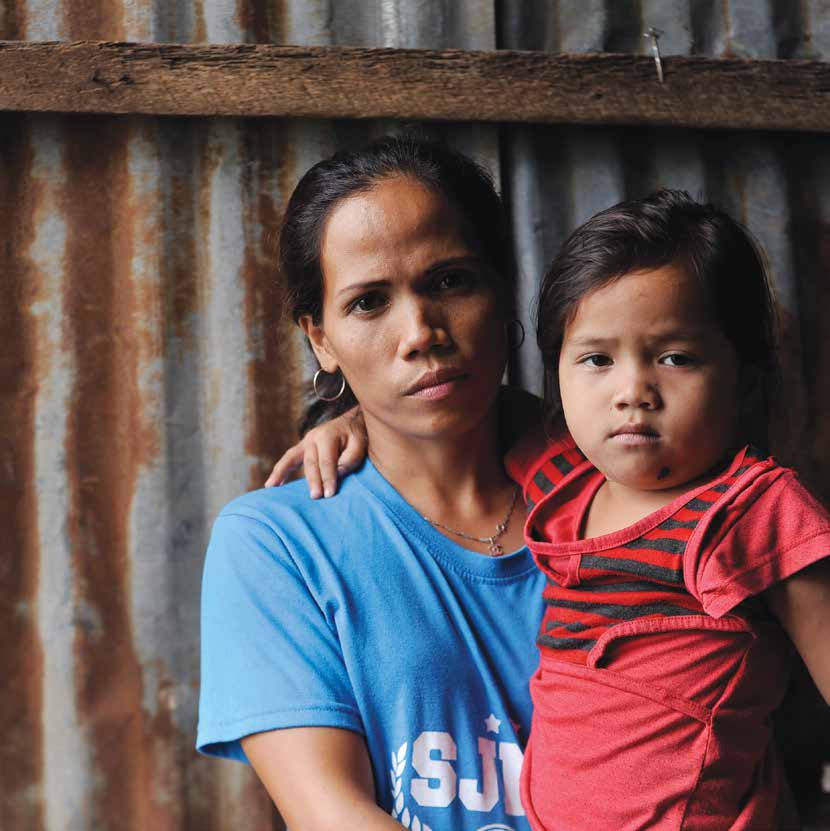
© IOM/Alan Motus 2014
By Charisse Licaña
I am a newly trained carpenter, having recently spent 10 days learning how to rebuild houses. I was also the only woman on the course, out of 19 participants. In the Philippines, carpentry is still seen as a man’s occupation. It makes me proud to think that I’m helping to change people’s minds.
After the typhoon, all that was left of my home were the concrete foundations. My family and I rode out the storm sheltering in the bedroom of our house. None of us were hurt, but with no roof and walls we were basically homeless. We built a makeshift shelter, using whatever we could find from the wreckage and tarpaulins given out by aid organizations. But it didn’t feel safe and whenever the wind and rain started up again I would get worried.
We lived like that for three months, until our barangay leader recommended that we apply for a free carpentry course in partnership with Technical Education and Skills Development Authority (TESDA). My husband, who used to be a carpenter, was selected to take part but he couldn’t take up the place because he was too busy trying to make money for our family doing odd jobs. My father was a carpenter and I had learned some of the basics, so I immediately put myself forward instead.
On the first day, I turned up at the course and met the other participants. I think they were shocked to see me there, to be honest. When my fellow classmates realized I could do everything just as well as they could they started joking that I was the “queen of the carpenters”. Women began to approach me as I walked to the training carrying my tools, wanting to find out if they too could take part.
We were put into groups of five according to our abilities and worked as a team to rebuild each other’s houses using materials provided in the shelter repair kits. At the end of the course, we were individually assessed on the practical skills we had learned. I’m happy to say I passed and received a certificate, so I now have a formal record of my carpentry skills. I want to sign up for the next course, on wiring and electrics, when it opens.
I’m thinking of arranging a workshop for the local women so I can pass on what I have learned because everyone, whether they’re a man or a women, should learn how to build strong, secure houses for when the next typhoon comes. Now, I’m no longer scared when the wind begins to howl.
Charisse P. Licaña, 33 years old
Barangay Concepcion, Ormoc City, Leyte